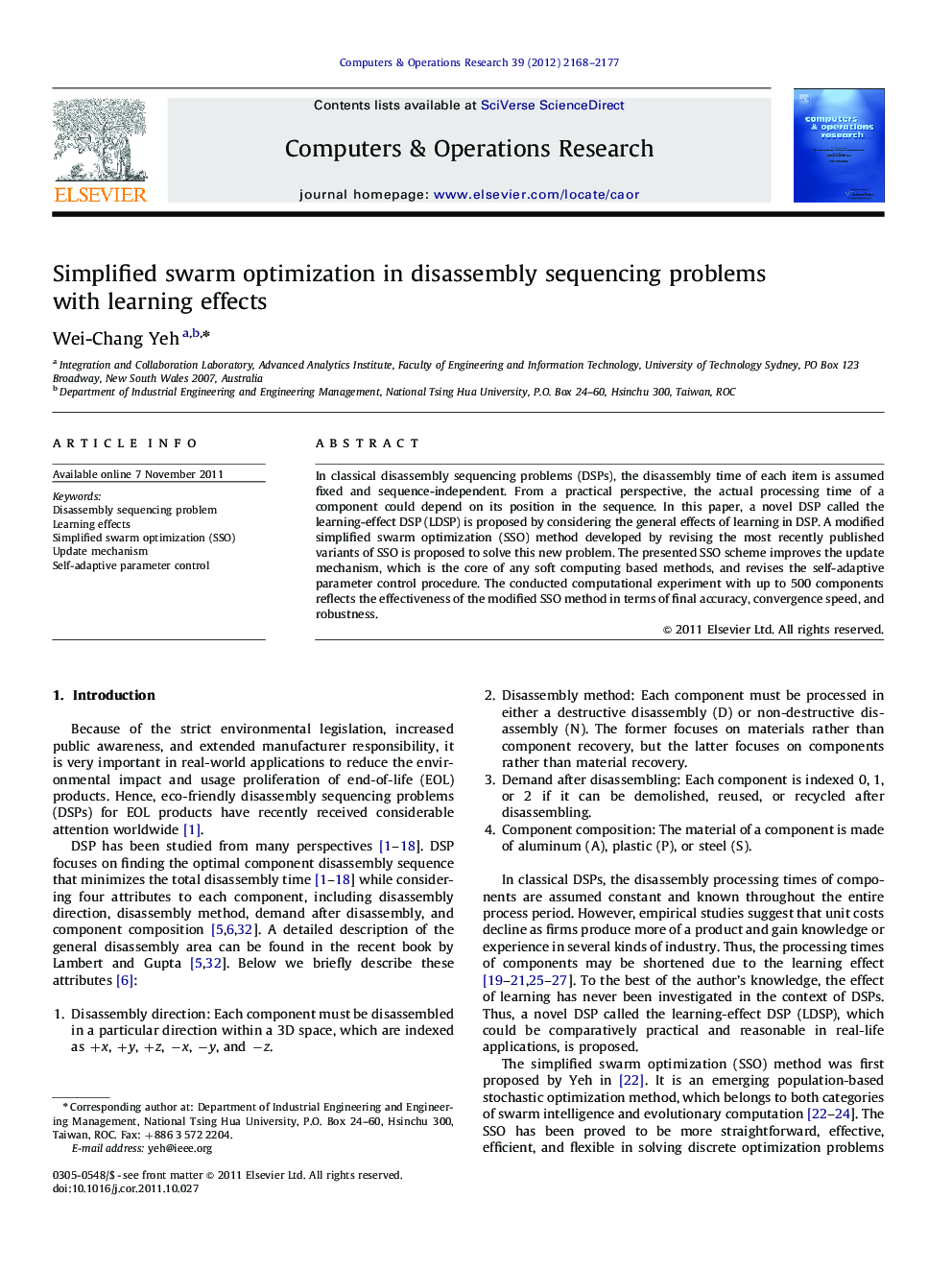| Article ID | Journal | Published Year | Pages | File Type |
|---|---|---|---|---|
| 474702 | Computers & Operations Research | 2012 | 10 Pages |
In classical disassembly sequencing problems (DSPs), the disassembly time of each item is assumed fixed and sequence-independent. From a practical perspective, the actual processing time of a component could depend on its position in the sequence. In this paper, a novel DSP called the learning-effect DSP (LDSP) is proposed by considering the general effects of learning in DSP. A modified simplified swarm optimization (SSO) method developed by revising the most recently published variants of SSO is proposed to solve this new problem. The presented SSO scheme improves the update mechanism, which is the core of any soft computing based methods, and revises the self-adaptive parameter control procedure. The conducted computational experiment with up to 500 components reflects the effectiveness of the modified SSO method in terms of final accuracy, convergence speed, and robustness.
► We model a novel disassembly sequencing problems by considering the learning-effect DSP (LDSP). ► We modified the simplified swarm optimization (SSO) to solve LDSP. ► We improved the update mechanism and revised the self-adaptive parameter control procedure. ► The conducted computational experiment with up to 500 components reflects the effectiveness of the modified SSO method in terms of final accuracy, convergence speed, and robustness.
